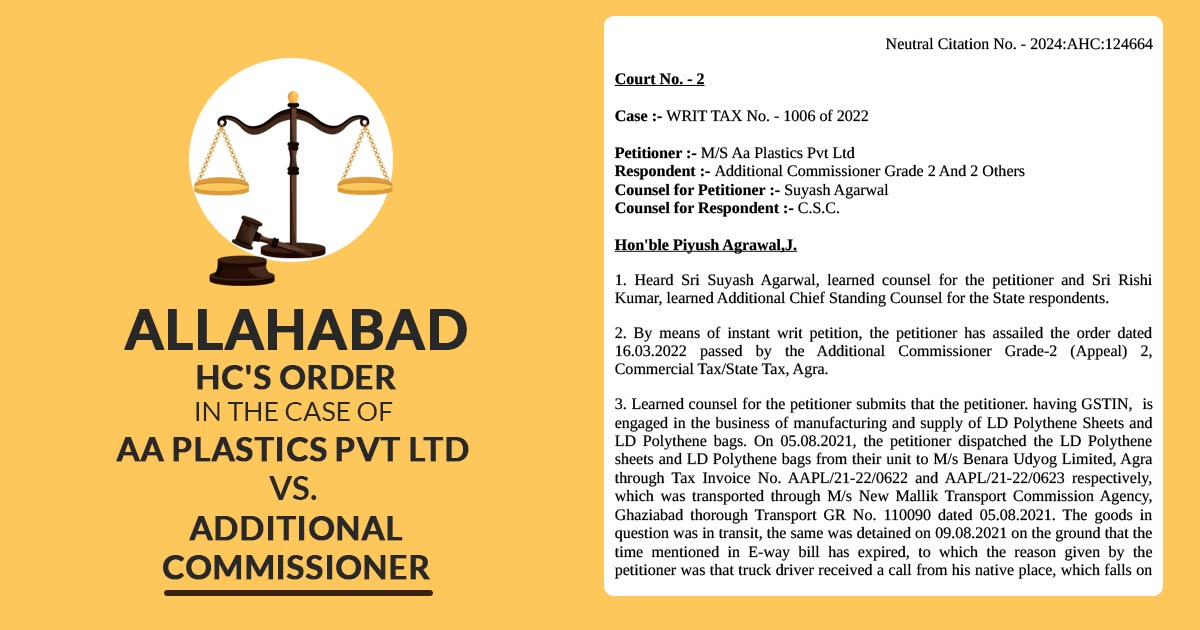
A detention order has been quashed by the Allahabad HC issued u/s 129 of the GST (Goods and Services Tax) Act, discovering that the expiry of an e-way bill due to a driver’s detour was insufficient grounds for such action. It remarked that the intention to evade tax is essential for invoking Section 129.
The applicant is in the manufacturing and supply of LD Polythene Sheets and Bags, had dispatched goods on August 5, 2021, with the important tax invoices and transport documents.
But the goods were detained on August 9, 2021, as the e-way bill had lapsed. The applicant elaborated that the truck driver had chosen an unscheduled detour without reporting the consignor or consignee.
Despite submitting an updated GST e-way bill the next day, the authorities confiscated the goods and charged a penalty on August 17, 2021. This decision was upheld despite the petitioner’s appeal being rejected and evidence showing no discrepancy in the quantity of goods or intention to evade taxes.
The bench of Justice Piyush Agrawal remarked that the actions of the respondent did not fulfil the criteria for invoking Section 129, which demands a demonstration of intent to evade tax.
Read Also:- Allahabad HC Deletes Penalty U/S 129(1)(b), Not Acceptable to Consider Goods Untraceable in Transit
The Court quoting the decision in Shyam Sel and Power Ltd. Vs. State of U.P., underscored that Section 129 must be read in conjunction with Section 130, which necessitates evidence of tax evasion purpose. The use of Section 129 was considered inappropriate as no such objective was specified.
The court in the matter of Shyam Sel and Power Ltd. Vs. State of U.P., kept that once the dealer had intimated the attending and mediating circumstances under which the e-way bill of the purchasing dealer was cancelled, it was a minor violation. The authority can have initiated proceedings u/s 122 of the CGST Act instead of proceedings Under Section 129 of the CGST Act.
Section 129 of the CGST Act should be read with section 130 of the said Act, which demands the intention to evade payment of tax. Once the authorities have not marked that there was intent to evade tax payment, proceedings u/s 129 of the CGST Act. ought not to have been initiated, but it may be accomplished u/s 122 of the CGST Act in the points and circumstances of the present case.
It was ruled by the court that the detention order was not sustainable and hence quashed it. The applicant is qualified for the refund of any amount deposited at the time of the pendency of the writ petition, which must be processed within a month of furnishing the certified copy of the order.
| Case Title | Aa Plastics Pvt Ltd v/s. Additional Commissioner |
| Citation | WRIT TAX No. – 1006 of 2022 |
| Date | 02.08.2024 |
| Counsel For Petitioner | Suyash Agarwal |
| Counsel For Respondent | C.S.C. |
| Allahabad High Court | Read Order |









